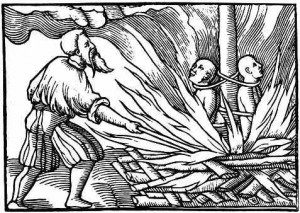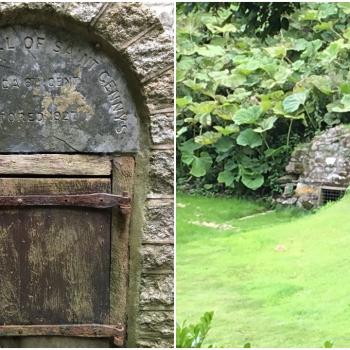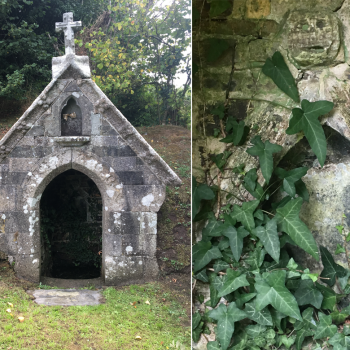Freedom within society

We must not forget that the reason why Paganism flourishes in the Western world today is because of liberty. Without exception, the only countries where Paganism, and especially witchcraft, can be practised openly are those that embrace civil liberties. For Pagans living in a liberal society, it’s easy to forget how transgressive our path is in the context of less liberal nations. Our way of life is literally blasphemy in the eyes of authoritarian states and fundamentalists of organised religions: It promotes the veneration of many deities, the reverence of sacred images (“idolatry”), the practise of magic and communion with the divine among laymen, the view of nature as something not inferior to humanity, the embracing of sexual freedom and the naked human form, and, most subversive of all, the equality of all people regardless of gender, race, sexuality or religious belief. The only reason why I am not imprisoned and punished by the state for writing this blog, and why I do not fear violent repercussions from those who disagree with me, is because I live in a society that says that I cannot be detained by the state for writing about my beliefs – and, importantly, other people in this country do not have the right to commit crimes against me because I offend them. That is the essence of freedom of expression.
It was not always like this in the UK. The Witchcraft Act, introduced in the 16th century to punish practitioners of magic, was only repealed in 1951, while blasphemy laws were abolished less than a decade ago in 2008. While these laws were in force, people could be, and were, punished by the state for actions deemed offensive to Christianity. Practitioners of witchcraft and other pagan ways most definitely fit this category in the strictest interpretation of these laws, hence the witchcraft trials of the 15th – 18th centuries.
How different things are today. Not only have the laws that officially prohibited Paganism been repealed, but Pagans are in fact defended from persecution by the Equality Act 2010 (a mirror of the EU Equal Treatment Directives), under which religion is considered a “protected characteristic.” This means that it is now illegal to discriminate against Pagans on the basis of their religion. So not only can I openly practice Paganism without fear of persecution from my own government; I can also practice openly in the knowledge that employers and service providers cannot legally discriminate against me for being a Pagan.
Protecting our freedoms
The story of the rise of Neo paganismis the story of the rise of liberal attitudes to religion in the West. It is a story not only of an increasing perception of religion as a personal practice rather than an institutionalised doctrine, but also of societies bestowing greater freedoms on their people to express themselves. It is intricately connected to the idea of democracy – that we, the people, should be the ones to decide how we live our lives, rather than dictators in ivory towers making those decisions for us.
In the context of the EU debate, my decision on whether to vote to Remain or Leave will be based on freedom. Will leaving the EU give the UK greater freedom by restoring the sovereignty of the British government, by giving its people a greater voice in lawmaking, and by enabling us to reject EU regulations? Or will remaining in the EU defend freedom in the UK by ensuring laws that protect individual human rights are enforced, by curbing the power of multinationals to make decisions that are detrimental to society, and by reducing restrictions on where we can legally live? It’s a decision that we need to research carefully, listening with an open mind to both sides of the debate, before turning out to vote. And we should turn out and vote. No matter what decision we make, we need to ensure our government knows that democracy and freedom are sacred to us by taking our place at the ballot box on June 23rd.
References and Further Reading
Barrett, David V. A Brief Guide to Secret Religions: A Complete Guide to Hermetic, Pagan and Esoteric Beliefs (2011)
Mankey, Jason. “Not My Council,” Patheos Pagan (2015)
Wikipedia, “Blasphemy law in the United Kingdom,” “Equality Act 2010,” “Witchcraft Acts” “Witch trials in the early modern period“
















